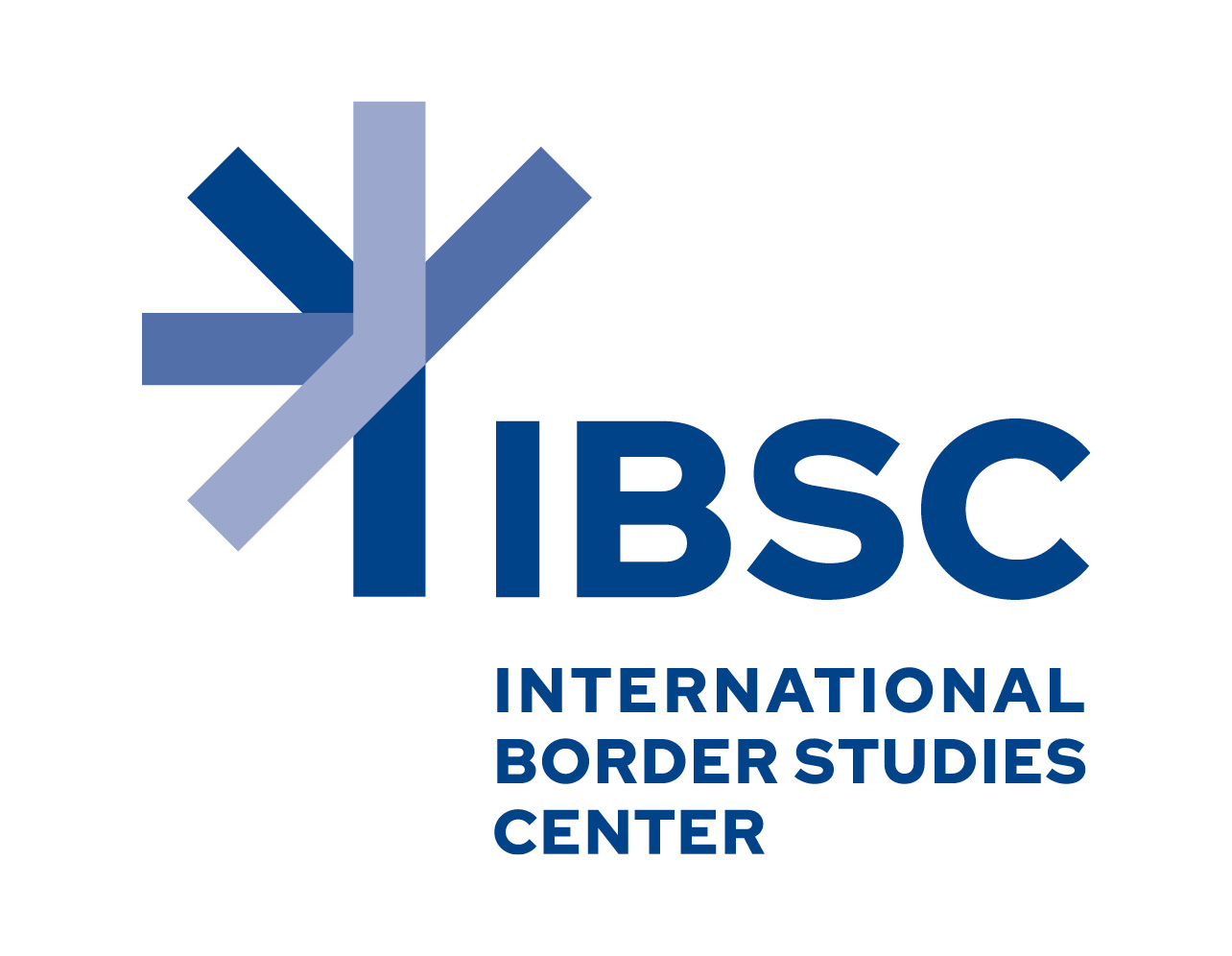
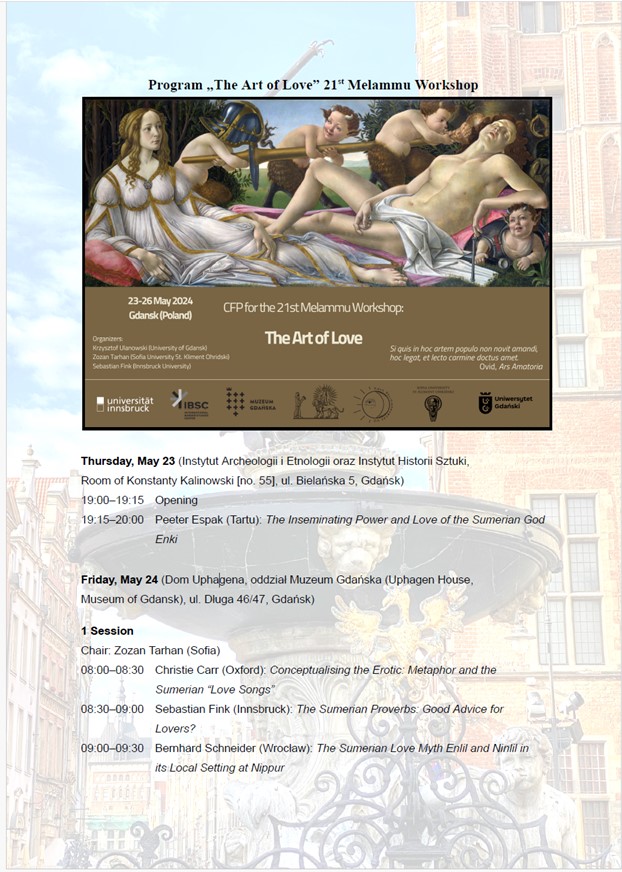
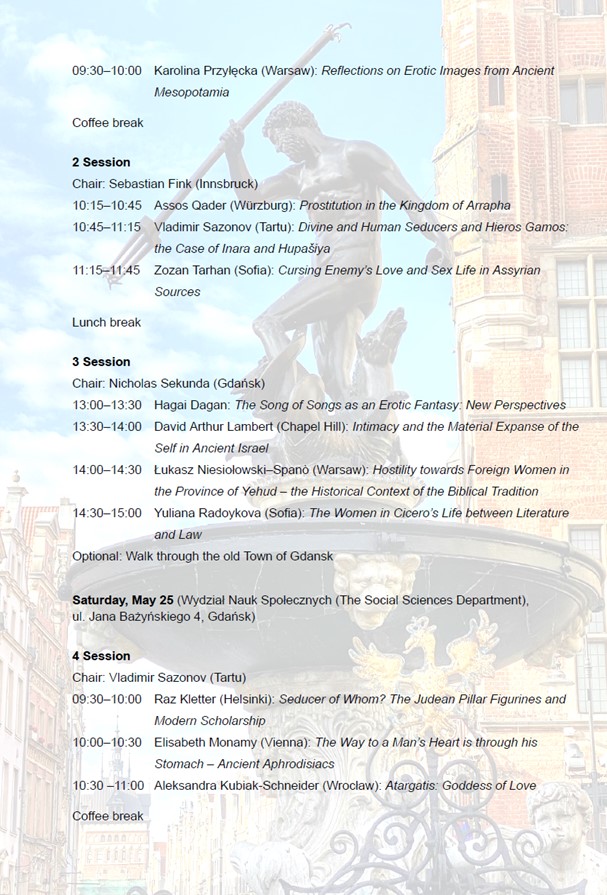
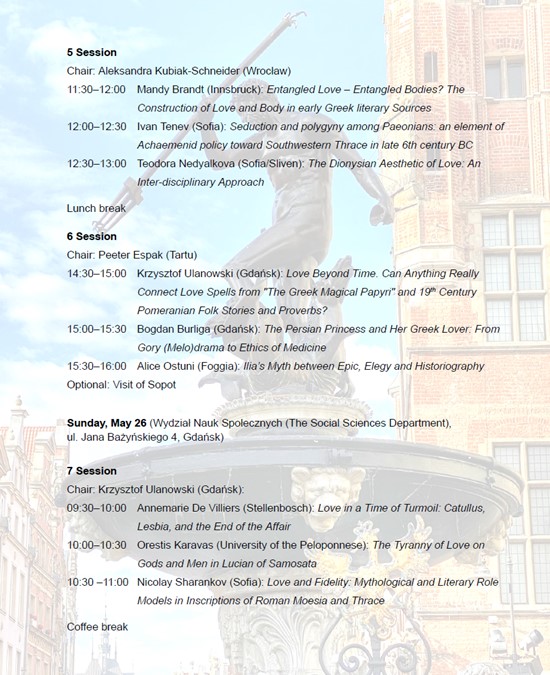
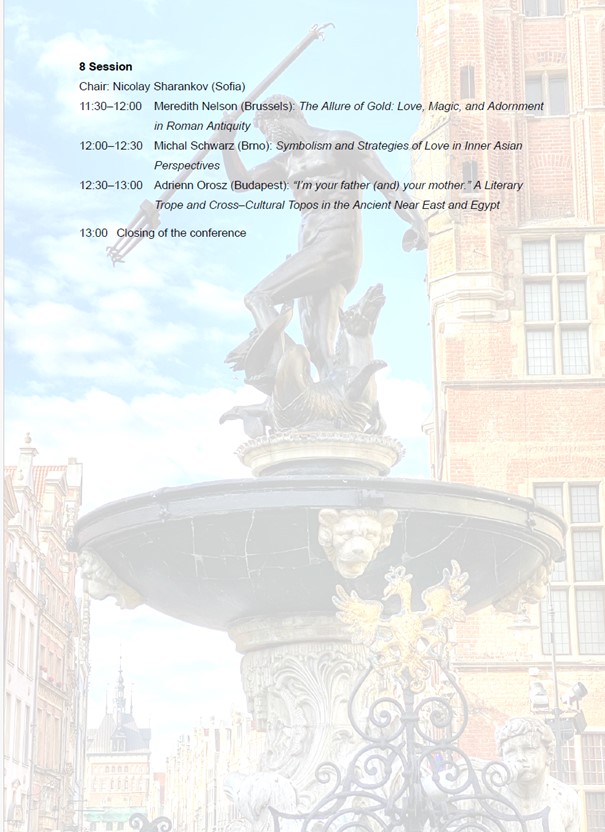
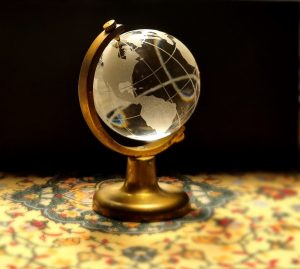
International Border Studies Center Globality Forum
Borderlands Storytelling: Narratives and Performances of Epistemic Relatedness
May 22-23, 2024, Faculty of Languages, University of Gdańsk
The International Border Studies Center (IBSC) at the University of Gdańsk, with the participation of the SEA-EU Observatory for Migration and Human Rights, is launching a Globality Forum (GF) aimed at investigating how global agendas are related to local contexts. The first event of the GF will be a symposium Borderlands Storytelling: Narratives and Performances of Epistemic Relatedness planned for May 22-23, 2024, at UG’s Faculty of Languages.
Dates: May 22-23, 2024 Place: Faculty of Languages, University of Gdańsk
Please send your proposals (max. 300 words) + short bio (CV) to: grzegorz.welizarowicz@ug.edu.pl
Deadline for submissions: extended until March 15, 2024
Organized in partnership with: The Melammu Project http://www.melammu-project.eu/
The name “Globality Forum” builds on Edouard Glissant’s distinction between globality (mondialite) and globalization (mondialisation). The latter expresses what Walter D. Mignolo calls “global designs” of the modern world system which have entrenched totalizing certainties in the realms of epistemology, geopolitics, metaphysics, etc. Globality on the other hand articulates these designs from local positions, from the agency of the subaltern, the nomad, the “minor designs” (Gilles Deleuze and Felix Guattari). Globality foregrounds localisms from the exterior of the universal history not as lesser but as irreducibly different. The notion of globality lends itself to investigations in a variety of spheres including studies on popular culture, ancient and modern history, environment, law and governance, migrations of peoples and nonhuman subjects, economy and labor, military influence and technology, social networks and mechanisms of social cohesion, imaginaries, aesthetics, epistemologies, etc.
In the first iteration of the GF we focus on storytelling and epistemologies to inquire how narratives and performances intervene into the conceptual apparatus encoded by European languages and our Western epistemic assumptions (ego cogito, Western law, narrative order, universalism, transparency, spatiotemporal linearity, etc.). One way of thinking about these processes is through Glissant’s concept of “epistemological Creolization” which, as he argues, establishes a relation between cultures not based on hierarchies or domination but one better explained with terms like coexistence and convergence, variability, difference, diffraction, drift, plurality, opacity, multilingualism, texture. If Creolization names “a new and original dimension allowing each person to be there and elsewhere, rooted and open … in harmony and in errantry” (Glissant) the symposium plans to investigate how storytelling serves as an instrument of relating (negotiating, confronting, balancing, resignifying, oscillating between) epistemic and cultural differentials.
Or, to put it differently, we ask how narrative and performative practices (theater and performance, poetry, novels, storytelling festivals, pageants, visual art, comic books, newspapers, archives, etc.) express and advance what Mignolo calls “border gnosis” that is ways of thinking on the edge or on the “/” between master narratives and their double, their darker side(s), that is, between knowledges made into global designs and those which have been subalternized. How do we theorize a critique that is mobile and situated at the shifting borderlands of knowledges? What discursive strategies relate (in both senses of the term: “to tell” and “to bring into connection”) universal fragmentation? What case studies, historical or contemporary, and in what specific places can illustrate processes of epistemic relatedness?
In our usage of “borderlands” (rather than “border”) in the title we follow David Chang who suggests that instead of borderlands conceived as territories around a particular line of a nation-state border, we should think of them as “nodes in a network of global processes.” Borderlands are understood here as trans-border zones, sprawling, expansive (planetary) networks linking distant places by both global and local forces. In this take, places are never just there but are figured as crossings, intersections at which global history is made local and local history global.
Chang emphasizes that such an approach allows factoring in indigenous peoples’ histories whose lives and stories become indicators of globality in action. It is thus in indigenous worldview and cultural practices that we may seek examples of epistemological relatedness all the more so that, as Thomas Norton-Smith explains, relatedness is the first principle of American Indian philosophy. In the epigraph above Native American playwright Muriel Miguel speaks of “circles upon circles upon circles.” She conjures a multi-centric, multi-scalar and decentralized borderlands map of coeval relation between the intimate and the familial, the local and communal, the state and the globe. This offers one imaginary paradigm of storytelling in the borderlands of knowledge.
The symposium is to serve as a laboratory in search of theories, concepts, imaginative formulas, case studies. In more practical terms it aims to develop a model for advanced borderlands studies and border gnosis research and pedagogy as well as to collect innovative approaches to borderlands aesthetics (riffing on and building on “border aesthetics”, a field developed in the fifteen or so years. An edited volume based on the proceedings is projected. A plan for an international research project in globality (not only in the realm of the aesthetics) and a grant application (possibly under the Erasmus + and/or SEA-EU frameworks) will be discussed.
Globality Forum’s Borderlands Storytelling: Narratives and Performances of Epistemic Relatedness will be held in an onsite lab format and will include presentations, roundtable discussions, artistic/performative interventions, and workshops.
TOPICS – AS INSPIRATION ONLY
- Border gnosis
- Popular pageants at the crossroads
- Places as crossings
- Gateways and passageways
- Lapsus and third meaning
- (de)colonial lacuna
- Oscillations in subjectivity
- Differential consciousness
- Trickster consciousness
- Imaginary mappings
- Thresholds
- Prophetic love and love at a distance
- Punctum, breaking, puncture
- “Zero degree of meaning” (Barthes)
- Legal frameworks
- Migration and Human Rights
- Utopia/no-place
- Counternarratives
- Indigenous history and storytelling
- Oppositional pastiche
- Creolization (Glissant)
- Mestizaje, Coatlique state (Anzaldua)
- Middle ground and Middle voice
- Alethic frontier and frontier
- Wastelands
- Trauma
- Migration narratives
- Transnationality
- Comic books
- Adaptations and translations
- Foreign language acquisition
- Renegades, terrorists, smugglers
Storytelling starts at the kitchen table, on your parent’s lap, on your aunt’s and uncle’s laps. Storytelling begins there, about who you are … Then it continues from there about who you are in the family; of where you are as a tribal member, as part of that particular nation; then where that nation is in the community; and where that community belongs in the world. There’s always circles upon circles upon circles. Muriel Miguel (Spiderwoman Theater)
We would distinguish, therefore, between a cooptive liberal pluralism, tainted at birth by its historical roots in the systematic inequities of conquest, slavery, and exploitation,90 and what we see as a more relational and radical polycentric multiculturalism. The notion of polycentrism, in our view, globalizes multiculturalism. It envisions a restructuring of intercommunal relations within and beyond the nation-state according to the internal imperatives of diverse communities. 91 Within a polycentric vision, the world has many dynamic cultural locations, many possible vantage points. The emphasis in „polycentrism,” for us, is not on spatial or primary points of origin but on fields of power, energy, and struggle. The „poly,” for us, does not refer to a finite list of centers of power but rather introduces a systematic principle of differentiation, relationality, and linkage. No single community or part of the world, whatever its economic or political power, should be epistemologically privileged. (Shohat and Stam 48)
PAST EVENTS
ORIGINAL CFP: Border Seminar 2023
MIGRATION NARRATIVES AND BORDER STUDIES University of Gdańsk, May 23-25, 2023
The Border Studies Group (BSG) and the International Border Studies Center (IBSC) at the University of Gdansk welcome proposals for the Border Seminar 2023 on the theme of “Migration Narratives”, as well as the wider field of Border Studies, especially as it relates to accounts of migration experience and the emerging interdisciplinary field of border aesthetics.
The Border Seminar is an interdisciplinary conference organized at the University of Gdańsk by the BSG, an international team of literary/cultural scholars, linguists, historians, sociologists, artists, and educators interested in research and pedagogy centered on the notion of the border.
Johan Schimanski and Jopi Nyman (2021) argue that migration is the “master narrative” underlying the conceptual metaphors and concrete images of “the path, the bridge, the door (and implicitly the threshold) and the window,” which Georg Simmel, in his pioneering work on “border aesthetics,” proposed as “the central figurations of the divisions and joinings between different spaces”. Schimanski and Nyman apply Simmel’s concepts to explain that “migrants follow routes (paths), they pass through crossing points (bridges), they are excluded and have to wait outside selective barriers in order to enter (doors), and they can see a better life on the other side of the border (windows)” (Schimanski and Nyman). In other words, border aesthetics can be thought of as imaginings of migration or movement articulated as border-crossings and bordering processes.
At the same time, borders are now understood as “contingent social and cultural productions and as instruments of power, which determine and often substantiate our perception of the world” (Fellner 8; our emphasis). As such, their function is cognitive and semiotic, their figurations (in narratives, stories, photographs, films, images, and sounds) are constitutive, sustaining, and generative of relations of privilege and exclusion. In fact, as David Newman says, “it is on the level of the narrative, anecdote, and communication that borders come to life” (in Fellner 11). Migration narratives of necessity engage and negotiate such borders’ power in both content and form.
If border aesthetics and poetics inquire how cultural representations deal with borders and related concepts investigations of borders in narratives and images of cultural crossings and migrations can reveal unique, dynamic study material. It is there that the narrative trope of the border in its, what Astrid Fellner calls, “defining narrative function“ akin to that of a “literary giant” or to what Harold Bloom calls the “precursor” or the “strong poem”, comes into contact, negotiates, and grinds against other, larger and smaller narratives/images articulated as border-crossings.
Following these suggestions, we want to think of migration narratives as the ground upon which these negotiations occur, that is we propose to discuss imaginative representations of migration as borderscapes (Brambilla 2015) and bordertextures (Weier et.al. 2019), where multiple border-crossings and bordering processes take place, interact. Concomitantly, we want to investigate the border-crossings/migrations of narratives as we probe the scope of the border aesthetics.
We welcome contributions from the wider interdisciplinary fields of Border Studies and Migration Studies, especially as they relate to the narrative/representational challenges of borders and migration, where themes such as the crisis of language and memory, the clash of time-frames and generations, haunting, notions of flows and porosity, transgressions of gender, class, race and genre, labor relations, questions of authenticity and decency, scholarly practice and intellectual theft, real and imaginary landscapes, and more may be present.
In connection with the above, the BSG and IBSC at the University of Gdansk look forward to receiving proposals that relate to but are not limited by the following categories:
→ migration narratives in connection with education and alternative forms of education
→ migration narratives as a guiding principle in performance
→ the theorizing of practice in terms of migration narratives and border aesthetics
→ language teaching theory and /or practice underpinned by migration narratives
→ borders and languages
→ new digital technologies and narratives of migration
→ migrations of objects, migrations of narratives
→ migration as the master narrative in border aesthetics
→ migration narratives in diasporic literatures and other media
→ formal challenges to representing migration as bordering experiences and processes
→ visibility/invisibility and migration
→ spectrality and the spectacular
→ border imaginaries and ethnic loyalties
→ coloniality, colonialism and routes of migrations
→ decolonial migration imaginations
→ migration narratives and the intermedial critique and practice
→ migration narratives and hospitality studies
The Border Seminar 2023 will involve international special lectures, individual presenters, panel discussions, workshop sessions, performances, and screenings.
The Border Seminar 2023 will be held on site at the Faculty of Languages, University of Gdansk.
The conference will be HYBRID, with an option of in-person as well as online participation.
The conference fee is 200.00 PLN – a fee waiver is possible under special circumstances, please contact organizers. 50% fee reduction for online participants and graduate students.
Please submit:
→ proposals for individual 20-minute papers (max. 250 words)
→ proposals for thematic panel sessions (max. 750 words)
→ short bios
→ state your affiliation
→ Deadline for submissions: March 1, 2023.
→ send by email to grzegorz.welizarowicz@ug.edu.pl
For more information please visit: https://ibsc.ug.edu.pl/
Border Seminar 2023 Organizing Committee:
The Border Studies Group/Pracownia badań nad granicami and International Border Studies Center: Dr. Ross Aldridge; Dr. Martin Blaszk; Dr. Anna Mazurkiewicz, Dr. Maciej Rataj, Dr. Krzysztof Ulanowski, Dr. Grzegorz Welizarowicz.
Sources:
Bloom, Harold. Anxiety of Influence. A Theory of Poetry. New York Oxford UP, 1973.
Brambilla Ch., 2015, Exploring Critical Potential of the Borderscapes Concept, “Geopolitics”, vol. 20, issue 1.
Fellner A.D. (ed.), 2020, Narratives of Border Crossings: Literary Approaches and Negotiations, Baden-Baden: Nomos.
Weier S., Fellner A., Frenk J., Kazmaier D., Michely E., Vatter Ch., Weiershausen R., Wille C., 2019, Bordertexturen als transdiszipinarer Ansatz zur Untersuchung von Grenzen. Ein Werkstattbericht. “Berliner Debatte Initial”, vol. 29, issue 1.
Schimanski J., Nyman J. (eds.), 2021, Border Images, Border Narratives: The Political Aesthetics of Boundaries and Crossings, Manchester: University of Manchester Press.
